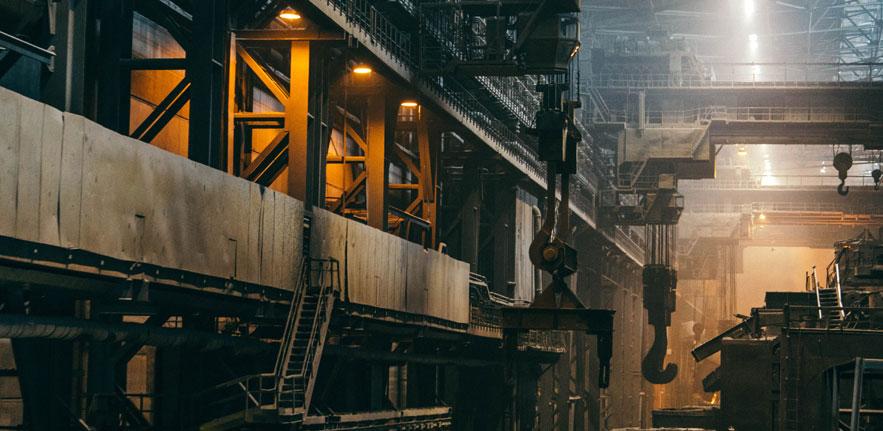
3 October 2019 – A new policy briefing from Corporate Leaders Group Europe (CLG Europe), a business leadership group convened by the University of Cambridge Institute for Sustainability Leadership (CISL), sets out approaches for how business can reduce industrial emissions to net-zero by 2050 and calls on EU policymakers to deliver a clean and circular industrial strategy.
The report, Forging a carbon-neutral heavy industry by 2050: How Europe can seize the opportunity, will be launched at this year’s Green Growth Summit, on the eve of the October Environment Council meeting.
The briefing highlights some of the latest thinking around the challenges and opportunities involved in decarbonising European heavy industry and calls for a new focus from the EU on circularity, clean technologies and the decarbonisation of industry.
Despite heavy industry being directly responsible for only a small proportion of Europe’s GDP and employment, it provides vital inputs into the supply chains of most other sectors of European industry. Through a series of case studies, the report looks at potential emissions reduction approaches to support a net zero emissions by 2050 scenario.
Eliot Whittington, Director of Policy, CISL said:
“It’s no longer enough to look only at the low-hanging fruits. We need to grapple with the harder to decarbonise sectors like heavy industry. As emissions reduction increase, heavy industry will come to account for more and more of Europe’s carbon footprint. With a new industrial strategy focused on circularity, clean technologies and decarbonisation, Europe can develop new competitive advantages, secure cleaner air and water, create new jobs and show the world the value of delivering an inclusive Green Deal.”
The briefing calls on the EU to create a new industrial strategy that should:
- Create strategic clarity and direction, including on CCS, biomass and hydrogen;
- Work to unlock investment and provide financial support;
- Provide incentives to create market demand for low carbon goods, services and materials, including through carbon pricing;
- Embed circularity within industrial and wider policies;
- Align energy and other infrastructure plans to support this transition;
- Embed all this within an approach focussed on supporting and enabling innovation.
Leading provider of renewable packaging, biomaterials, wooden constructions and paper, and a member of the Corporate Leaders Groups, Stora Enso’s work on renewable materials is a highlighted case study in the report.
Stora Enso CEO Karl-Henrik Sundström said:
“The world needs a new approach to materials. Construction material choice accounts for 11% of global CO2 emissions. Stora Enso’s renewable materials provide low-carbon solutions that can help in achieving net-zero carbon buildings.”
Geanne van Arkel, Head of Sustainable Development, Interface EMEA said:
“Interface is committed to running not only a net zero business focussing on low carbon circular solutions but a carbon negative business focus. We aim to do that by decarbonizing across our products, operations and within our supply chain.”
The Green Growth Summit will bring together EU climate and environment ministers from the Green Growth Group, business leaders, and representatives from the European Parliament, Commission and experts, offering a forum to discuss transition towards a climate neutral Europe and the associated economic and social opportunities.
The 2019 Summit will be the first under the auspices of the Green Growth Partnership – the transition of the Green Growth Platform to a partnership between the Green Growth Group and CISL corporate leaders group CLG Europe.
The Summit discussions will be shaped by high-level panels focusing on:
- Laying the foundations of a climate neutral and prosperous European economy
- Transforming Europe’s heavy industry
- Investing in the net zero emissions economy
Speakers include:
Krista Mikkonen, Minister of the Environment and Climate Change, Finland
Carole Dieschbourg, Minister for the Environment, Climate and Sustainable Development, Luxembourg
Lord Ian Duncan, Minister for Climate Change, UK
Juris Pūce, Minister for Environmental Protection and Regional Development, Republic of Latvia
Maria Patek, Federal Minister for Sustainability and Tourism of the Republic of Austria
Norbert Kurilla, State Secretary of the Ministry of Environment of the Slovak Republic
Brune Poirson, Secretary of State, Ministry of the Ecological and Solidary Transition, France
Eva Svedling, State Secretary for Climate, Ministry for Environment, Sweden
Sveinung Rotevatn, State Secretary, Ministry of Climate and Environment, Norway
Karsten Sach, Director General, Federal Ministry for the Environment, Nature Conservation and Nuclear Safety, Germany
Emma Navarro, Vice-President, European Investment Bank
Fredrick Federley, Member of the European Parliament
Artur Runge-Metzger, Director, European Commission - DG Clima
Martin Lindqvist, CEO, SSAB
Seppo Parvi, Chief Financial Officer, Deputy to the CEO, Stora Enso
Harry Verhaar, Head, Global Public and Government Affairs, Signify
Geanne van Arkel, Head of Sustainable Development, Interface EMEA
Dr André van Wageningen, Director Public Affairs EU/NL, DSM
Sam Van den Plas, Policy Director, Carbon Market Watch
Monica Mireles Serrano, Head of European Affairs, IKEA Group
John Scott, Chief Risk Officer, Zurich Commercial Insurance
Simon Connell, Chair of the BEI, Head of Sustainability Strategy, Standard Chartered
Eliot Whittington, Director of Policy, CISL, Director of CLG Europe
Martin Porter, Executive Chair, CISL Brussels
Dr Bronwyn Claire, Senior Programme Manager, ClimateWise, CISL




